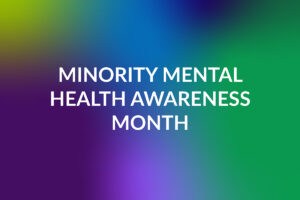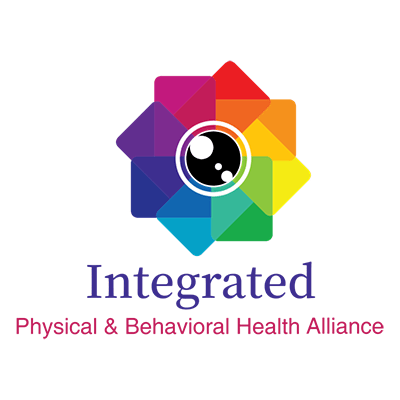Fall 2024 courses start September 16, 2024
Fall 2024 courses start September 16, 2024
My interest in a DBH degree grew out of frustration and hope. On one hand, I grew frustrated with the quality of care my clients with intellectual and developmental disabilities were receiving. As members of a marginalized population who lack the skills to advocate for themselves, the clients I serve receive subpar medical care, mental health care, and behavioral health care. Many healthcare providers are not trained to address the unique language and cognitive challenges present when serving a person with Autism and I/DD.
On the other hand, as I learned more about the DBH program, a potential solution came into view. I believe this program will allow me to acquire the knowledge and skills to become a better advocate for my clients, and new job opportunities will open up in positions in which I will be able to make a bigger impact on a system level, thus improving quality of life for many clients. A DBH degree will command interest and respect from other healthcare professionals who are evaluating their practices and noticing areas in which they are not being effective, namely the behavioral health side of the equation. As we are learning in our first classes about the Biodyne Model, the Integrated Care Model is not widely accepted or known in the healthcare field, despite its proven track record. I believe a DBH degree provides the necessary tool to change the landscape of healthcare provision by arming my passion for this topic with knowledge and concrete strategies.
As a Doctorate of Behavioral Health (DBH) student my vision for healthcare is to disrupt the current model, close gaps to care and create healthcare improvements. In the evolving world of healthcare I believe behavioral healthcare providers (BCP) are essential to the development of integrative healthcare. Once I obtain a DBH degree, I know I will gain a leadership role and be able to add quality to the creation of integration efforts worldwide. I know I will graduate with the essential tools I need to stand at the forefront of integrated healthcare. I want to create healthcare improvements for marginalized populations that are typically underserved or forgotten. As an individual of two minority groups; woman and African American, I am very passionate about helping reduce cultural, ethnic, social economic and geographic disparities within healthcare systems.
Since beginning my studies at CGI, I have been awakened to how much I truly did not know and understand despite my specialty training in Social Work and behavioral health needs. The classes at CGI allow me to explore topics that I may not have thought to investigate and encourage me to question and think outside the “normal” delivery of behavioral health services. Services that I previously thought were quality and designed to meet the needs of special populations, I now believe to be woefully inadequate to serve the needs of the patients. Patients cannot receive the best quality, efficient, and timely care they need and deserve within institutions that are not integrated. Institutions that continue to silo and do not encourage collaboration and integration are not focused on the needs of the patient.
I believe, as a DBH, I will disrupt the current healthcare systemby promotingguaranteed health care for allasa right, not a privilege.I willadvocate fora national, rather than state, licensing of providers. This will allow clinicians (medical,behavioral health, etc…) to provide care across state lines using telemedicine.Finally, the skills I have learned at Cummings Graduate Institute for Behavioral Health Studies allow me to identify healthcare delivery concerns, propose alternative interventions and cost–effective solutions and evaluate theirreturn on investment.
Since entering CGI, I have more confidence in discussing the need for healthcare systems to have a population health approach to care, and to put in place “upstream” programming. I have always been proud of working in a hospital and delivering care, working as a multidisciplinary team member, and making a difference. I now realize I have been part of healthcare’s focus of “treating the sick” rather than being an influencer for preventative care.
Preventative care can be part of service delivery from a hospital system; we should not rely only on public health programs to tackle social determinants of health. COVID-19 is not only impacting mental health but also how we are delivering medical care. Could COVID-19 be an unintended force for healthcare policy change? Apostolopoulos et al. (2020) reports the complexity presented to the health care system by COVID-19 has created change that will continue in healthcare for years to come. The needed changes to delivery and access will require a policy shift in all levels of healthcare (Apostolopoulos et al., 2020).
As a member of the AAPI community, I’m very familiar with the barriers to mental health services and the need to break through the glass wall of cultural stigma that prevents many from receiving potentially life–saving treatment. I was the only Asian American person in my master’s cohort, the only Asian American person in many of my clinical work settings, the only Asian American person to walk into many of the professional settings that I pushed myself to show up to. In my current practice, I’m constantly reminded by my patients of how difficult it is to find an Asian American mental health provider, though this reminder constantly informs me that more needs to be done for my community. Day after day, I read stories of Asian American people who die by suicide as a consequence of our culture’s avoidance of mental health topics. As a DBH, my biggest goal is to use my expertise in whole–person care to amplify the conversation around mental health and help my community understand that mental healthcare is not a privilege that we are not entitled to, it is a crucial part of our healthcare that will manifest differently in us than what many Western psychology or psychiatry textbooks will describe, and that our unique experience of mental health issues are valid, important, and is time to be part of the larger conversation.
Pursuing a doctorate in behavioral health is essential in helping to transform my thinking as a healthcare provider; moving from a more traditional mindset, embracing change and a “different world view” of tools for successful client outcomes. This type of advanced study will equip me with the clinical and leadership skills to be a leader on the cutting edge of behavioral health. This type of training would make me an asset to the healthcare workplace; specifically to function effectively as a change agent for the successful outcomes of the workplace and its clients.
I remember before my interview when applying to the DBH program, I researched information about Dr. U. Grant Baldwin along with other staff members of CGI. I said to myself, this is the kind of institution I want to be apart of. Being apart of CGI feels like a huge family, even though long distance, everything and everyone is always so close.
The DBH is exactly the type of doctorate degree that I’ve been searching for. A doctorate that is clinical focused is where my interest lies. I am motivated to pursue this degree, and courses like Pathophysiology, Psychopharmacology, Neuropathophysiology, only add to that excitement. One must be motivated to complete any degree program. The Doctor of Behavioral Health fits
that bill for me. In fact, I would say that I am beyond motivated.




























